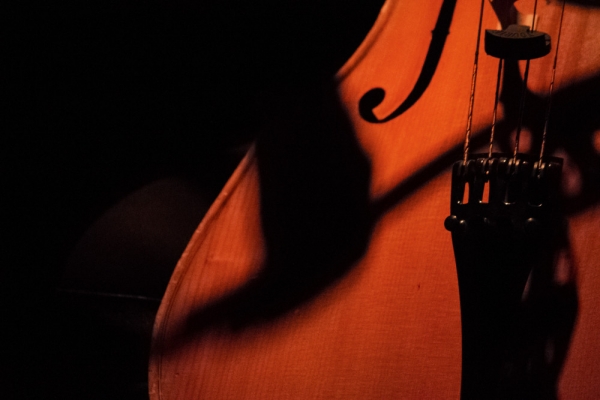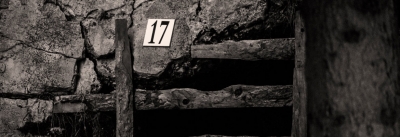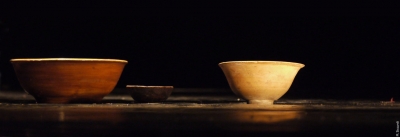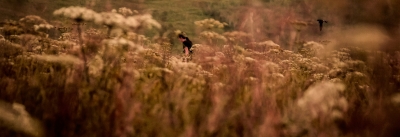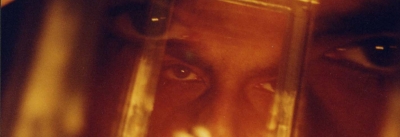In Touch Network is a new network connecting companies and organizations producing and programming Human Specific Performing Art.
Audience Europe Network - AEN is creating a European platform for senior cultural professionals to talk about all the things that motivate cultural audiences to attend – and enjoy creative experiences.
MUSICHE DEL TEMPO
with Massimo Munaro piano and spoken voice and Laura Bisceglia cello and chant
lyrics from Marcel Proust and Marco Munaro
music and direction Massimo Munaro
nb: the audience should bring along a blanket
The scenic concert is a never felt before journey trhough the music composed by Massimo Munaro for Teatro del Lemming's performances. The music are live performed in a new version for Teatro del Lemming's performances. The music is live performed in a new version for piano, cello and voice. If music, like theatre, is a time dynamics, a way to compose the time, these musics try to explore the incorruptible space beyond ageing and death. As always happens in Lemming performance, audience not only attends a show but rather to be delve into the opera. Is to live an experience.
Giulietta e Romeo. Letters from the liquid world
Nekyia - A trip by sea at night
Tetralogy on mith and spectator:
- Amore e Psiche. A tale for two spectators
- Edipo. Tragedy of senses for one spectator
Vai alla Teatrografia completa
SENSORIAL THEATRE WORKSHOP
In our ordinary life sight and hearing are over stimulated, at times abused senses while touch, smell and taste, mostly able to bring us back to a grounded and primitive memory, are more and more overlooked. In the poetics of the Lemming's company all the five senses become the ways to experience theatre, not only as a cognitive practice, rather as a powerful and emotional one. Director and Ensembleworked over 20 years looking for the most accurate technique to prepare and build the actors. This research gave birth to an innovative pedagogical method, namely “The five senses of the actor”. Emotions are the fuel of the performer. How to raise them? How to guide them? Through listening to perceptions we appeal both to imaginary as to a profound connection with sincere emotions. Moreover the actor should learn how to lead the spectator through the scene, how to involve him, in order to produce intense feelings and physical reactions. Workshop’s participants often play blinded, and in couples. A mythological and oneiric background is used to set the improvisations proposed during the seminar.
Next dates:
Rovigo
Vicenza
Berlin
THE FIVE SENSES PLUS ONE: THE SOUL'S DOOR
The methodology studied and applied by Lemming's Theatre considers the body, in the fullness of its five senses, became the door of soul and dream. The body consequently is the main tool of the actor.
If soul, the Aristotelian psyche, could not exist without a living body, the senses are the gateway to an imaginal and archetype universe. These universe is the essential tool for the actor to achieve the creation and the identification. Trough the senses it is possible to join a paramount source of inspiration, named the ancestral soul of the world by James Hillman.
THE SPECTATOR'S THEATER
The spectator's theater is an unedited perspective in contemporary theater.
It is characterized by:
1. an intimate and personal experience for the audience;
2. a relation between the personal subjectivity and the myth universal models;
3. a deep emotional experience dedicated to the singular spectator or small groups of audience: an audience direct participation in the event is, for these reason, implied;
4. a space to habit and to lose in;
5. a relation constructed trough the body of the actor and the spectator both: the experience is although strongly sensitive – not only sight and hearing but also sense of smell taste and touch. All the five senses together reacting to create a dramaturgy of senses.
6. an aesthetic and sensuous universe allowed to be explored by the audience.
The Theatre of the Spectator is a theatre that:
1. is a deeply emotional experience for the audience;
2. is not a simple representation but became the personal experience of an event: I don't attend something but I live it;
3. is not dedicated for a shapeless crowd (the audience) but it is dedicate to every singular participant;
4. is able to redefine the role actor/spectator through their direct relation that became the experience focus;
5. considers the audience no more a nineteenth-century voyeuristic spectator, given that, nowadays, the paradigm of our citizen condition is similar to inert powerless spectators;
6. challenges the passivity of the audience that became the actor of the event: he often is the leading actor;
7. makes the theatrical event a unique, personal and irreplicable experience for every singular participant;
8. builds small rituals because it relies on the ritual, sacred and cognitive sense that is fundamental in the theatrical experience also;
9. gets back to a native theatrical practice able to induce people to became citizens of the world;
10. defines the actor's work like a gift of love towards the spectator, whit all the challenge, the mutual bare and the structural risk that these involves;
11. is able to redefine the use of the theatrical space, the performance is no more forward, but it looms me, it is in me and I live in it like in a universe in which I fall;
12. is able to redefine the time of the experience: it starts when the spectator book his participation and it broaden before the end trough the inevitable processing.
TRAVEL IN THEATRE
for 30 spectators
Nach “Oedipus. Tragödie der Sinne für eine Zuschauer” zeigt die italienische Theatergruppe Teatro del Lemming eine weitere Produktion in Berlin, die für 33 Zuschauer konzipiert ist.
Die Zuschauer werder Protagonisten auf der grenzenlosen Reise des Odysseus. Sie treffen auf Unvorhersehbares – auf Eros, Monster, Erinnerungen, Gewalt und Tod.
Die Abenteuer folgen keiner linearen Geschichte, sie ereignen sich simultan wie im Traum.
Das Meer und auch das Theater haben kein Zentrum, sie hinterlassen keine Spuren. Aber das Theater, das sich in ein Meer verwandelt, wird zum Ort, an dem wir unsere Geister treffen und wo wir unser Itaca, unser Heimatland erobern können. Dorthin kehren wir zurück, dort sind wir immer wieder anders und doch gleich.
Das teatro del Lemming ist eine bekannte italienische Theatergruppe, die 1987 in Rovigo, Italien gegründet wurde. Das Ensemble hat ein experimentelles Theater kreiert, das die dramaturgische und sensorielle Mitwirkung der Zuschauer in den Mittelpunkt stellt. Ein physisches Theater, das man mit seinen fünf Sinnen erleben Kann.
After presenting “Oedipus.Tragedy of senses for one spectator”, Teatro del Lemming is bringing in Berlin its “Odysseus. Travel in Theatre”.
In this performance the direct relation between actors and spectators is taken to a larger audience. Here we have 33 spectators that taken together are a single identity, the Odysseus’ one, which, as the group of spectators, is multiform. Spectators become protagonists of a story that reminds the unexhausted Odysseus’s travel towards Itaca, but that’s also the flash of the unexpected, the encounter with Eros, with the monstrosity, the memory, the nostalgia, the violence, the death.
Odysseus' body is wounded, but his wound has became a scar.
Odysseus' journey is circular and implies a departure and an homecoming: from Ithaca to Ithaca.
In Lemming’s performance the journey doesn’t develop in a linear way, but synchronically: everything happens at the same time. Like in a dream. The Sea, as Theatre, hasn't got a “centre”; and the Sea, as Theatre, leaves no trace. But Theatre, as Odysseus' sea, is the only place where we can meet our ghosts and where we can conquer our Ithaca: the home where we can always come back different but still the same.
"If you want to sit in your chair and passively watch a performance, don’t go! Since the 1980s, Italian avant-garde Teatro del Lemming has been exploring sensorial theatre, where spectators are totally involved, touched, shaken, invaded with smells, presented with decisions to make... Last month, they brought their Oedipus piece for one spectator to Berlin, an experience we’re still digesting. At Odysseus you won’t be alone, but with 32 others, travelling a circular journey from Ithaca to Ithaca, where everything happens at the same time, like in a dream. A not-to-miss total theatrical experience! "
The show is for thirty-three spectators at time (3 repeats a day).
Duration of each performance: 45 minutes
The reservation is compulsory http://www.tfk-

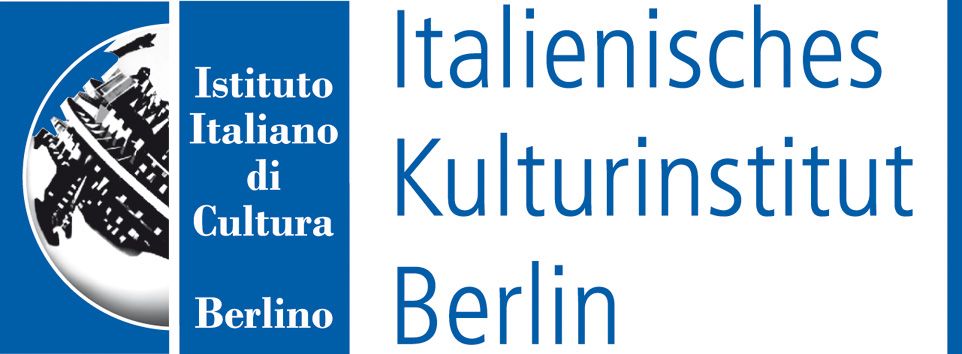

More...
Working process
Whatever is opposed is reconciled and from different things are born the most beautiful harmony, and all things are generated by a contrasting way.
Eraclito, Dell’origine
Ricerca teatrale può dirsi possibile solo a partire dalla creazione di un processo, che a sua volta può darsi solo a partire dalla disponibilità di adeguati tempi di lavoro.
Per ricerca teatrale si intende quel teatro che persegue:
- l'autonomia del linguaggio scenico dal testo teatrale;
- la ridefinizione dello spazio scenico;
- la riformulazione della presenza e dello sguardo dello spettatore;
- una pedagogia originale sull'attore;
- un legame che unisce gli attori al progetto del gruppo;
- un processo e tempi di lavoro che consentano una reale ricerca.
The group
I rebel - therefore we exist
Albert Camus, The rebel
Experimental theatre entails a link that connects the actors to the project of the group.
Indeed, each actor is involved and becomes responsible of the theatrical work, that he contributes to achieve on the stage.
Experimental theatre is all that theatre pursuing:
- the autonomy of scenic language from a written play;
- the redefinition of the scenic space;
- the reformulation of the role and the gaze of the spectator;
- an original pedagogy of the actor;
- a link that connects the actors to the project of the company;
- a process and working times that permits to practice a real research.

